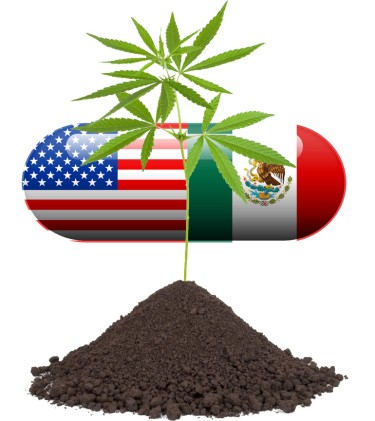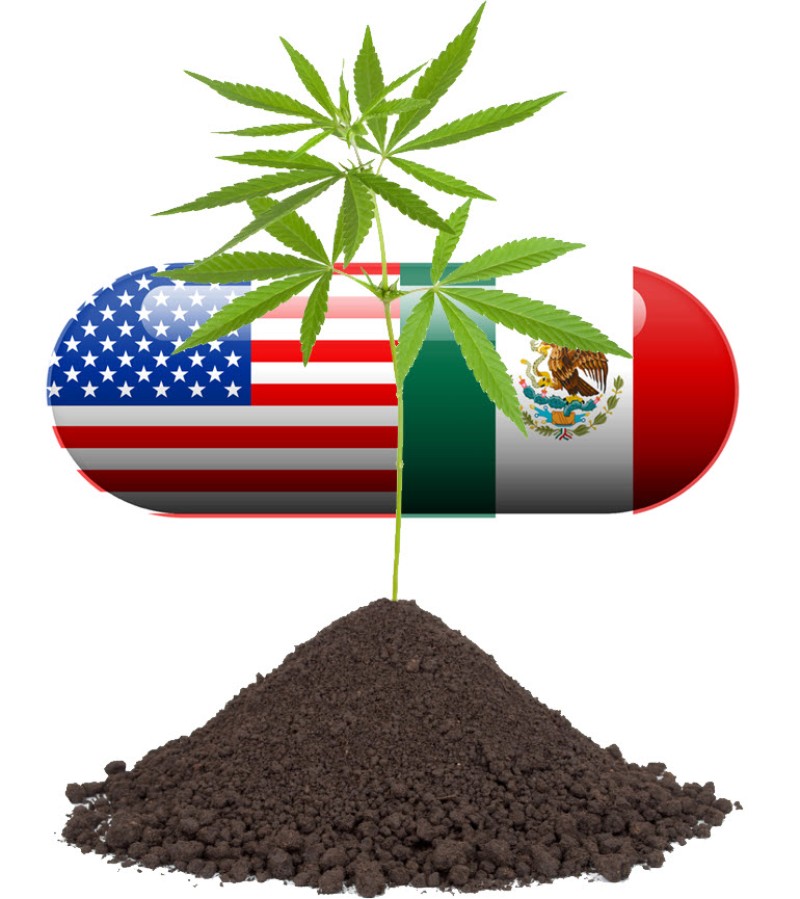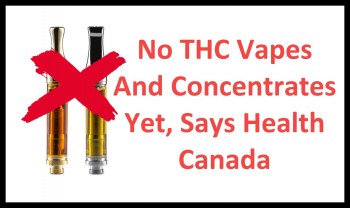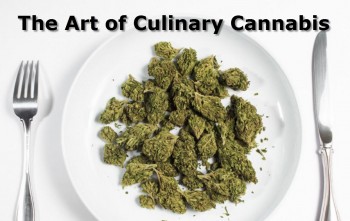
DEA vs Mexican Politicians - This could get Ugly
It was a hot and humid day in Culiacan, Mexico, and the air was thick with tension. The sound of gunshots echoed through the streets, as the narco cartels engaged in yet another violent battle for control. The city was a warzone, a place where assassinations were a common occurrence, and the population lived in fear of the drug lords.
Mexico and the United States had been working together for years in their war on drugs. But despite their efforts, the narco control in Mexico remained prevalent. The cartels were more powerful than ever, and the violence they inflicted was on the rise.
It was a strange time for Mexico, as the country had just begun legalizing marijuana and decriminalizing all drugs. It was a step in the right direction, but the cartels were not about to give up their lucrative business without a fight. They continued to operate with impunity, often in collusion with corrupt officials.
The situation had gotten so out of hand that even the US government was implicated in the chaos. The infamous "Fast and the Furious" scandal had revealed that the US was allowing guns to flow across the border into the hands of the cartels. The result was an increase in violence, as the cartels grew more powerful and more brazen in their attacks.
The statistics were staggering. In 2020 alone, there were over 34,000 homicides in Mexico, many of which were attributed to the drug war. It was a brutal reality, one that the people of Mexico had to live with every day.
But amidst the chaos, there were those who refused to give up. The journalists who risked their lives to expose the corruption and violence, the activists who fought for change, and the ordinary citizens who refused to be cowed by the cartels.
It was a strange and terrifying time in Mexico, a place where the lines between good and evil had been blurred beyond recognition. And yet, in the midst of it all, there was a glimmer of hope. A hope that someday, somehow, things would change. That the narco control would be broken, and the people of Mexico could live in peace.
But that glimmer isn’t coming from the DEA, who recently said that they are targeting high functioning politicians in Mexico with ties to Drug Cartels as it seems that a “Chapito” sang and started jotting down names.
As you can imagine - this is probably not sitting well with both the politicians or the drug cartels. Who, by the way, own land and politicians in the US - which means if the house of cards comes down, there might be many surprises left in the wake.
But what did the DEA really say?
The DEA's Director, Anne Milgram, faced tough questioning from US lawmakers regarding the agency's contracts worth millions of dollars, which were not subject to bidding, and allegations that it hired former associates.
The DEA spent $4.7 million on contracts for "strategic planning and communication" and other services without a proper bidding process.
During the hearing, Milgram was criticized by Republican members of the House Appropriations Committee, who called for an investigation into the contracts.
Despite this, Milgram refused to discuss the allegations included in the AP's report, nor whether she was the subject of the inspector general's investigation.
The hearing comes as the DEA is targeting Mexican politicians for drug trafficking, with Milgram stating that the agency will pursue government corruption in Mexico that protects fentanyl traffickers.
She cited the investigation and arrest of former Honduran President Juan Orlando Hernandez as an example of the DEA's efforts to combat corruption that fuels drug trafficking. The agency is also investigating Venezuelan President Nicolas Maduro.
However, the DEA's efforts in Mexico are complicated by the prevalence of narco-control in the country, with frequent assassinations and violence.
The country has begun legalizing marijuana and decriminalizing all drugs, but the narco landscape remains a major challenge.
Despite this, the US and Mexico continue to work together to sustain the drug war, with events like Fast and the Furious interlinking the two nations make trust issues a problem. More importantly, the current President doesn’t like US intervention.
He’s a populist president that caters to the members of his party and demonizes every other party. He’s on a “holy quest” to thwart out the corruption out of the government, however there are implications that many of his party members are on the DEA’s list.
What would this mean for US and Mexico Relations?
Furthermore, the next presidential elections could have major implications on how things will move forward from here.
Let’s run a few hypotheticals shall we?
Hypothetical #1 - US & Mexico Collaboration
The Drug War in Mexico was a visceral and terrifying experience. I know, I was there!
When President Calderon declared war on drug trafficking organizations in 2006 along with the US, the country has been awash in bloodshed, corruption, and insecurity.
The military intervention in the drug war has resulted in countless dead bodies, dissapearances, and much more.
What was once a handful of major drug cartels has now splintered into smaller, more violent factions. Each one competing to control the drug trade and become the dominant force in Mexico.
These groups operate with impunity, carrying out brutal acts of violence without fear of retribution. They buy politicians, extort citizens and even own land in the United States. They don’t care and when the military gets involved, things get bloody.
This is what full US and Mexico cooperation looks like when the DEA and military are at the helm. The same scenario played out in Colombia in the 1980s, and the results were just as deadly. The drug cartels became even more powerful, as they adapted to the changing landscape and found new ways to make money.
As a result of this violence, drugs have become even more expensive, and the cartels have grown even richer. They have access to military-grade weapons, many of which are provided by the US government, which makes them even more dangerous.
The Drug War in Mexico has created a cycle of violence that seems never-ending. The more the government cracks down on the cartels, the more violent they become. It's a vicious cycle that has no end in sight. The only thing that's certain is that the people of Mexico are the ones paying the price for this failed policy.
But this is the similar approach that the US took against the mobs back in the 1920s which failed spectacularly. The only difference is that drug cartels have a far wider reach and much deeper pockets.
Nonetheless, in this first scenario, their going out with the idea of snuffing out the cartels - which always ends up badly!
Hypothetical #2 - Mexico Refuses to Cooperate
Picture this: a scenario where the current president of Mexico, Andres Manuel Lopez Obrador, flat out refuses to cooperate with the US government's war on drugs. He sees that many of his party members may be implicated and decides to take a stand. Diplomatic relations begin to erode, with both countries taking a hard stance on each other.
With this in mind, other countries like China and Russia would be quick to seize the opportunity to move into Southern America and establish new economic relationships with Mexico. This could mean that the Mexican government might be more open to Chinese or Russian investment, a move that would put the United States in a difficult spot.
The implications of this scenario are huge. Mexico is a major supplier of many goods to the US, and if diplomatic relations are severed or hindered, it would cause an economic disaster. Although there would still be some economic relations, trade deals might be renegotiated, and the cartels would use this system to grow untouched by the US government. This would undoubtedly mean more power and wealth for the cartels and less for the Mexican government.
Furthermore, if the US were to be caught doing any operations within the country, it would be considered an act of war according to the Mexican Constitution. This would make things very uneasy and create even more tension between the two countries.
This is also a possible scenario. Especially since AMLO is going to be in power for the next two years. Depending on who gets elected next term - if it’s someone in his own party, it could even create a bigger rift between US & Mexico Relations, since the Morena party has a lot of socialist undertones.
Hypothetical #3 - The Long Shot!
After years of tension and mistrust, the United States and Mexico finally have presidents who see eye to eye on the best way forward to tackle the ongoing drug war. Both leaders are forward-thinking and recognize that the war on drugs has been a catastrophic failure, causing untold suffering and loss of life.
One of the first actions of the new Mexican President is to fully legalize cannabis and decriminalize all other drugs. This move is met with great applause from the US President, who has been pushing for a similar move in his own country.
With the legalization of cannabis, the drug cartels in Mexico lose a significant source of income, and this encourages the governments of both countries to come together to tackle the issue of organized crime head-on. The US provides resources, intelligence, and technology, while Mexico offers on-the-ground expertise and knowledge.
The two countries work together to dismantle the cartels and disrupt their operations, cutting off the flow of drugs into the United States. The US invests in the Mexican economy, helping to create jobs and opportunity for the people of Mexico, which reduces the incentive for people to turn to the cartels for employment.
As the partnership between the two countries strengthens, so does the relationship between the people of Mexico and the United States. Trade and tourism flourish, and cultural exchanges become commonplace.
The drug war is far from over, but the two countries are finally working together towards a common goal. By legalizing cannabis and taking a new approach to the issue, the United States and Mexico have set an example for the rest of the world. They have shown that with cooperation and a willingness to change, anything is possible.
Except…for this scenario I wouldn’t hold my breath.
Most probably, the whole thing is going to play out in between the extreme poles of Hypothetical #1 and #2.
How do you think it will play out…it’s some strange times we living in!







